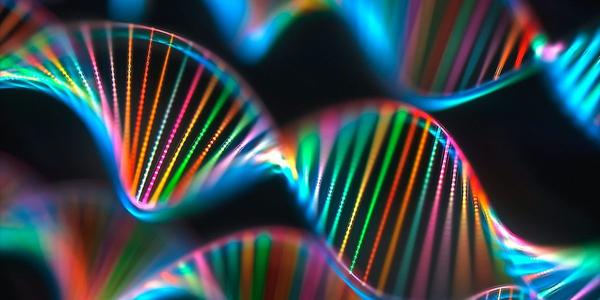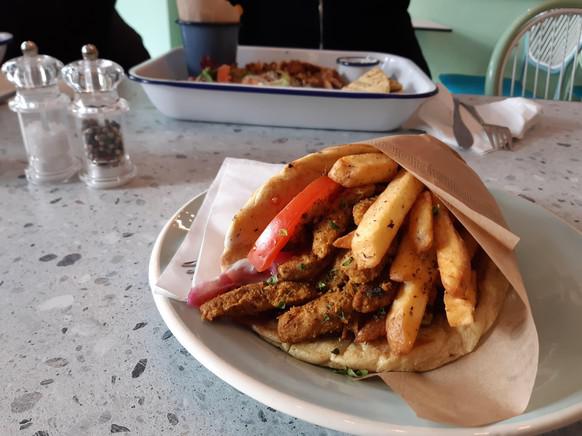
When the now 65-year-old biochemist Katalin Karikó moved to the United States with her husband and their then two-year-old daughter, she didn't even have a phone or a credit card. "It was a one-way ticket. We didn't know anyone," she tells Business Insider.
It was 1985. The small family emigrated from Hungary to Philadelphia, USA. The reason was that scientist Karikó had gotten a position at Temple University. They were only allowed to exchange $100, but Karikó found a way to take extra cash: she hid £900 in her daughter's teddy bear. The money came from selling her parents' car on the black market.
And that's how Karikó's career started. Finally, in 2005, twenty years later, she found a way to configure mRNA — a molecule that fuels the production of proteins — so that it is not attacked by the human body's natural defenses. She paved the way for one of the most important scientific achievements of the moment: the world's first mRNA vaccine.
Karikó, who is now 65, oversees the application of mRNA technology at Biontech — the German company that developed a Covid-19 vaccine in collaboration with American pharmaceutical company Pfizer. The vaccine has already been approved in the UK, Canada, Bahrain, Saudi Arabia and the US.
Karikó's work also inspired Moderna's vaccine development. Both vaccines rely on mRNA technology to elicit an immune response from the body. And so far both vaccines seem to be extremely effective in the fight against Covid-19: the Biontech/Pfizer vaccine is said to be up to 95 percent effective, Moderna's up to 94.5 percent.
While scientists expect that the rate of effectiveness will decrease somewhat after widespread use, the results so far are much better than previously expected. For Karikó, this success comes after a long, rocky road.
"Everyone rejected the idea"
Karikó's first mRNA therapy grant application was rejected in 1990, a year after she started at the University of Pennsylvania. After that came one rejection after another. "I kept writing and improving the concept — better RNA, better delivery," says Karikó. "I kept applying, trying to get government money or private support from investors — everyone turned it down."
Karikó was even demoted to a lower position in 1995. As if that wasn't discouraging enough, she was diagnosed with cancer at the time. In addition, her husband was detained in Hungary because of problems with his visa. In the end, he was not allowed to enter the United States for a full six months. And yet: Karikó continued to research.
What she didn't know at the time: her research on RNA would later provide the basis for the Covid-19 vaccines. These new vaccines use a small portion of the coronavirus mRNA to signal the body to make something called spike proteins. These help the virus to invade and attack cells. Once the body senses these spike proteins, it can produce antibodies that neutralize proteins — protecting itself against the virus.
Unlike traditional vaccines, mRNA vaccines stimulate the production of killer T cells that stop the virus from multiplying. In addition, such vaccines are relatively easy and quick to produce because they are produced in test tubes and not in cell cultures.
Before the successful mRNA vaccine was even developed, Karikó had to overcome a major obstacle: her research had triggered a dangerous immune reaction in experiments with mice.
An award-worthy discovery
Karikó has discovered that mRNA produced in the lab is recognized by the body and identified as an intruder. The body would therefore immediately destroy the mRNA before protein production could be triggered. Experiments with mice have shown that an inflammatory reaction can even occur, which could seriously impair the patient's health. So researchers had to find a way for the body to no longer classify the mRNA as a danger.

Katalin Karikó has been working on a solution to this problem for years. Her normal working day started at 6 a.m., she also worked on weekends and public holidays — and sometimes even slept in the office. “It certainly looks crazy from the outside. But I was happy in the lab. To this day my husband says it's like entertainment for me. I don't go to work, it's more like a game," she says.
At the same time, their daughter was growing up to be an Olympic athlete. Susan Francia has won gold medals for the US rowing team in 2008 and 2012. Karikó's position at the University of Pennsylvania has enabled her to send daughter Susan to college. "I thought I could never afford that. So no matter what, I had to keep my job,” Karikó recalls.
In 1997, Karikó met professor and molecular biologist Drew Weissman. He had just accepted a position at the University of Pennsylvania. The two began working together on the mRNA problem. The two finally succeeded in completely stopping the dangerous reaction in the mice by making a slight modification to the so-called nucleosides.
Katalin Karikó wanted to be 100 percent sure that they really hadn't made a mistake. "I repeated the experiment because I thought it might not have worked after all." But she found no mistake — and the research duo published their findings in 2005. Some scientists still consider Karikó and Weissman's discovery to be worthy of a Nobel Prize.
A whole new discovery
But even after Karikó's discovery, scientists still had to figure out exactly how to keep the body from destroying mRNA too quickly. Robert Langer, an American professor and chemical engineer, had also worked on mRNA vaccines and faced many setbacks. In 1976, Langer published a paper that suggested that nucleic acids such as DNA and RNA are encased in a so-called polymer. According to Langer, such a polymer could release the acids without causing an inflammatory reaction.
Langer's thesis drew a lot of criticism. Most people did not believe his findings. But the technology based on his findings would — as it turned out — be groundbreaking for drug delivery, which is used today in chemotherapy, for example. Current mRNA coronavirus vaccines contain a similar molecule that allows the mRNA to cross the membrane.
"Over the years, I've mainly developed better and better drug delivery systems," says Robert Langer. In 2010, Langer founded a company that specializes in mRNA therapy together with stem cell biologist Derrick Rossi and medical professor Timothy Springer: Moderna — the company whose vaccine against the coronavirus is still awaiting approval in Germany.
A patent tug-of-war
Karikó and Weissman filed for a patent soon after they published their work. When it was finally presented to them, Karikó's name came second. "I said, 'No, it was my idea. I want to come first,'" she says.
Her persistence may have been a response to the sexism she's experienced throughout her career. She says she was asked about her supervisor, although she was already working in her own lab. In addition, she was often only referred to as "Mrs. Karikó” titled, while their male colleagues always appeared as “Professor”. “I don't work in anyone else's lab. I created my own space,” she says.
With their patent, Karikó and Weissman then founded the company RNARx. In 2010, the University of Pennsylvania sold an exclusive license to the patent to Gary Dahl, CEO of laboratory supplier Cellscript. A short time later, Moderna was also interested in licensing the patent — but it was already too late for that.
Without the patent, Moderna had to work out a modification of the nucleosides itself in order to be able to come up with Karikó's results. In 2014, Moderna succeeded — the company also received a patent.
The end of a decades-long journey
Competition in the mRNA space continues to grow. In 2013, Moderna's research was supported with $240 million by British pharmaceutical company Astrazeneca. Moderna should try to develop mRNA treatments for cancer.
Katalin Karikó was denied a promotion at the University of Pennsylvania, saying it "didn't reflect the quality of the faculty," she was told. She told the news portal "Wired". Instead, she accepted a position as senior vice president of the German company Biontech. "When I said I was going to start at Biontech, I was laughed at and told that Biontech didn't even have a website," she says. In 2017, together with other researchers from Biontech, she succeeded in developing an mRNA vaccine that protected mice and monkeys from the Zika virus.
Now the first mRNA vaccine ever has been approved for use in humans: the Biontech/Pfizer vaccine against the coronavirus. Moderna's vaccine has also been approved, at least in the United States. Neither Karikó nor Robert Langer were surprised that two mRNA vaccines appear to be successful in the fight against Covid-19. “This follows the path we have been on before,” says Langer.
Like Karikó, Robert Langer sees the vaccine as the culmination of his years of work. When he learned that the Moderna vaccine was actually effective, he modestly celebrated. Now he spends his days as before: He talks to his students and his colleagues from Moderna via Zoom. Katalin Karikó says she got her happy phone call the night before the Biontech/Pfizer results were released. She then rewarded herself with a bag of chocolate peanuts.
This article was translated from English by Siw Inken Forke. You can find the original here.







